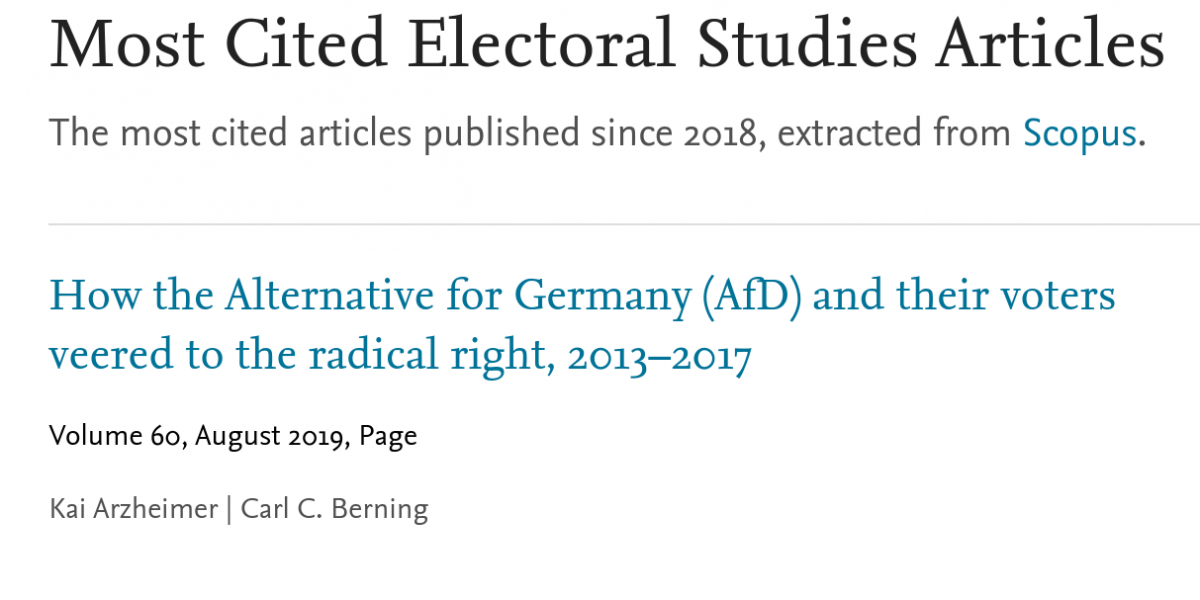The gamification of our personal and professional lives is a terrible idea. Elsevier is evil. More generally, the current model of academic publishing is unsustainable. And I’m a very happy chappy this afternoon. All these statements can be (and indeed are) simultaneously true.

So our article on the changing motives of people voting for the AfD during a period in which the AfD radicalised quite a bit has been frequently cited (about 30 times) over the last months. Yay us!
Obviously, the 2018-2021 window is totally arbitrary. Also, comparing an article to others published in the same journal makes kind of sense (they should be, well, comparable), but the group of all Political Science articles published in the same year (or quarter) would probably be a more useful point of reference. Moreover, German universities are still sort-of-boycotting Elsevier, so I feel mildly bad about publishing with them. Plus we could not benefit from the DEAL agreements that would have waived the fees for going Open Access, because there is still no DEAL with evil Elsevier.
But hey, this article is one of my favourite children. It was a long time in the making. I’m happy that it finally found a good home at Electoral Studies, and I’m even happier that people read and cite it. 30 cites within 20 months is not bad for a piece published in a specialist journal. Eat your heart out, More General Interest Journal That Rejected Its Previous Incarnation.
And while it would have been great to publish it as Open Access, the very similar pre-print is still available for your perusal: How the Alternative for Germany (AfD) and their voters veered to the radical right, 2013-2017.
Discover more from kai arzheimer
Subscribe to get the latest posts sent to your email.


Congratulations, dear Kai! Well deserved, the article is very good indeed😊